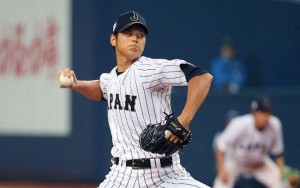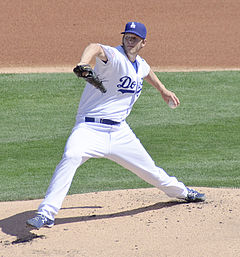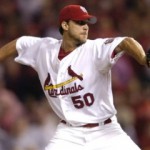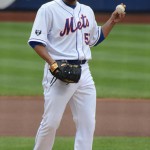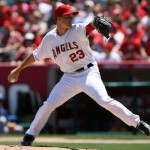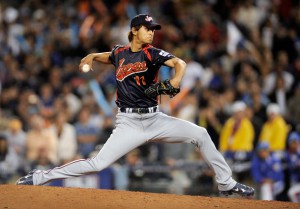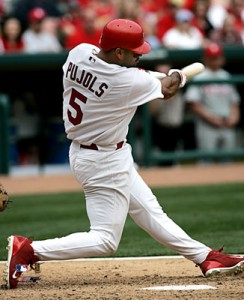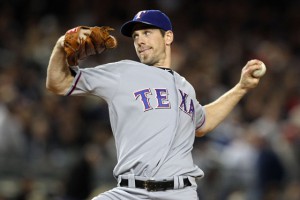As many others have noticed … there isn’t a heck of a lot going on right now in the “hot stove” season. But given where we are in the regular off-season calendar, lets bang out a couple of topics.
First: the Non-tender deadline.
For the first time in an awful long time, the Nats have no real obvious non-tender candidates on their roster. They entered the off-season with just four arbitration-eligible players and they are all set to be crucial pieces for 2018:
- Bryce Harper technically would have been arb-eligible but signed away his 4th year for north of $21M.
- Anthony Rendon comes off easily his finest season as a pro (his numbers across the board eclipse his 2014 5th place MVP season) and he should be in line to more than double his $5.8M 2017 salary.
- Tanner Roark struggled in 2017 (… perhaps caused/aided by the frequently-seen WBC hangover?) but is still slated to be our 4th starter on a rotation that doesn’t currently have a fifth and should be in line for about an $8M payday.
- Michael Taylor has established himself as one of the premier defensive center fielders in the game, will be set to start in 2018, and faces arbitration for the first time (likely to get around a $2.5M check).
Compare this to previous non-tender years (with links to non-tender specific posts from years past):
- 2016: we non-tendered Ben Revere, waived Aaron Barrett before having to make the NT decision, and declined Yusmeiro Petit‘s option as a way of “non-tendering” him.
- 2015: we non-tendered Craig Stammen, but kept NT candidates Jose Lobaton and Tyler Moore (eventually trading Moore after waiving him at the end of spring training).
- 2014: we did not non-tender anyone, though a couple weeks later traded NT candidate Ross Detwiler to Texas for two guys who never really panned out for us (Chris Bostick and Abel de los Santos).
- 2013: we did not non-tender anyone, only Ross Ohlendorf was a candidate, and in retrospect he probably should have been NT’d since he didn’t throw a pitch for the Nationals in 2014.
- 2012: we non-tendered three guys (Jesus Flores, Tom Gorzelanny, John Lannan) in the face of a huge amount of arbitration players (10).
- 2011: we non-tendered Doug Slaten deservedly, but tendered candidate Gorzellany.
- 2010: we non-tendered Chien-Ming Wang, Wil Nieves, Joel Peralta. We also outrighted 5 guys prior to the NT deadline, DFA’d two more in December, and DFA/dreleased four more guys prior to Spring training in a very busy off-season.
- 2009: we non-tendered Scott Olsen, Mike MacDougal
- 2008: we non-tendered Tim Redding, now the Pitching coach for our Auburn Short-A team, so I guess there was no hard feelings there 🙂
- 2007: we non-tendered Nook Logan, Mike O’Conner.
- 2006: we non-tendered or declined options for Ryan Drese, Brian Lawrence, Zach Day (it might have only been Day who was officially non-tendered)
- 2005: we non-tendered Carlos Baerga, Preston Wilson, Junior Spivey.
That’s a long trip down random memory lane for marginal Nationals players from yesteryear.
Post-publish edit: as expected, the team formally tendered contracts to the 3 arb-eligible players on 12/1/17.
The FA market in general seems to be held up by two major names: Giancarlo Stanton and Shohei Ohtani. Jeff Passan argues there’s other reasons (see this link) for the lack of movement, but one has to think the big names are a big part of it. I also believe that this year’s “crop” of FAs is … well kind of underwhelming. Here’s Passan’s ranking of FAs: his biggest names past Ohtani are Yu Darvish (who just sucked in the post-season, is coming off TJ surgery and doesn’t rate as the “Ace” he once was), J.D. Martinez (who blew up in 2017 but who has normally gotten a lot of his value from defense and he’s not getting any younger), Eric Hosmer (a 1B only guy, even if he’s really good, who seems like a safe bet to get over-pad and age badly) and Jake Arrieta (who has taken a step backwards from his Cy Young win and has already entered his decline years). Plus, the “price” for signing some of these QO-attached guys (Hosmer, Arrieta plus other top-10 FAs like Lorenzo Cain, Mike Moustakas and Wade Davis) will be quite steep for big-market and/or Luxury tax teams like our own Washington Nationals.
Frankly, between the higher price of forced loss of picks due to our over-spending last season, our current payroll tightness (we seem to only have about $17M to spend to stay under the tax for all of next year) and the underwhelming lot of available players … i don’t see us really participating in this year’s sweepstakes. Do we want to pony up for a middling 5th starter type like Jaime Garcia at the likely going price of $10M/year? Or roll the dice with a MLFA like we did with some success last year (Edwin Jackson, Jacob Taylor). Or just stay inhouse and let Erick Fedde continue to mature every 5th day on the mound?
Stanton, according to the tea-leaves i’m reading this week, seems like he’s heading to San Francisco, who is in desperate need for offense, outfielders and a franchise makeover after last year’s debacle. Stanton could fit all three. Which is great for him (he’s born and raised in California and would be joining a franchise that, despite its 2017 season, still has 3 WS titles in the last decade and a slew of marquee players to build around), great for the Nats (getting him out of the division), great for the “franchise” of Miami (who rids themselves of perhaps the 2nd worst contract in baseball behind Albert Pujols‘ and lets them get a relatively clean slate to start over for the new franchise ownership group), and of course awful for the “fans” of Miami, who thought they were finally getting rid of one of the worst owners in professional sports only to get slapped in the face with comical missteps by the new Derek Jeter-led ownership group, who managed to embarrass themselves in the most ridiculous way (by firing ceremonial Marlins legends for no good reason) early and then put themselves on the defensive needlessly by immediately crying poor and saying that they needed to pare payroll within a few days of taking over. If i was a Miami fan I wouldn’t know whether to laugh or cry.
I also think its notable that the first ex-Nat ranked on Passan’s list comes in at #43; the “ripe for regression” Matt Albers. Brandon Knitzler comes soon after him (who could be a re-signing candidate frankly for us, to put the “law firm” back together), then you have to get all the way down to #62 to find Jayson Werth. As compared to next off-season, when the Nats will have the #1 guy on the list.
Coming back to Ohtani (I’m going with the h in the name since after much research that’s what seems like the right way to spell it) ….
First things first: I desperately hope the Nats get him. Anyone who thinks that they’re better off without Ohtani is a fool; he’s set to become one of the biggest bargains in baseball. For the small price of a $20M posting fee, you get a guy who throws 100, is an 80 runner, and hits the crap out of the ball. For a miniscule bonus figure (the max any team has seems to be about $3.5M; the Nats only have $300k) and then a MLB min contract. Its just amazing. His presence could literally change the face of a franchise for a decade for about the same amount of money we will have paid Gio Gonzalez this year and next. I doubt he picks us though; it seems more likely he picks either a major market team (NY, Boston) on the east coast or (more likely) one of the west coast teams for better proximity to Japan and a larger Asian native market (LA, SF, Seattle). But its all speculation.
Hey, did I mention that the Nats need both another starter AND a lefty-bat off the bench, right now?? Ohtani would be perfect!
Side Note: why the heck is he coming over now and subjecting himself to MLB minimum contracts and arbitration?? He’s literally leaving $100M on the table by not waiting just two years and coming over un-restricted. I just cannot believe he’s doing this and costing himself so much money. I get the lip service comments about wanting to challenge himself, yadda yadda, but when there’s literally 9 figures of money on the table, I just don’t understand the decision. He’s projected to be better than Daisuke Matsuzaka, better than Darvish, both of whom got many times more money (Dice-K got $52M to him, $103M in total cost plus his posting fee), while Darvish got $60M to him and cost the Rangers $111M total with posting fee). It seems crazy.
Can’t wait to see where he goes, and I can’t wait to see if he’s the real deal.
